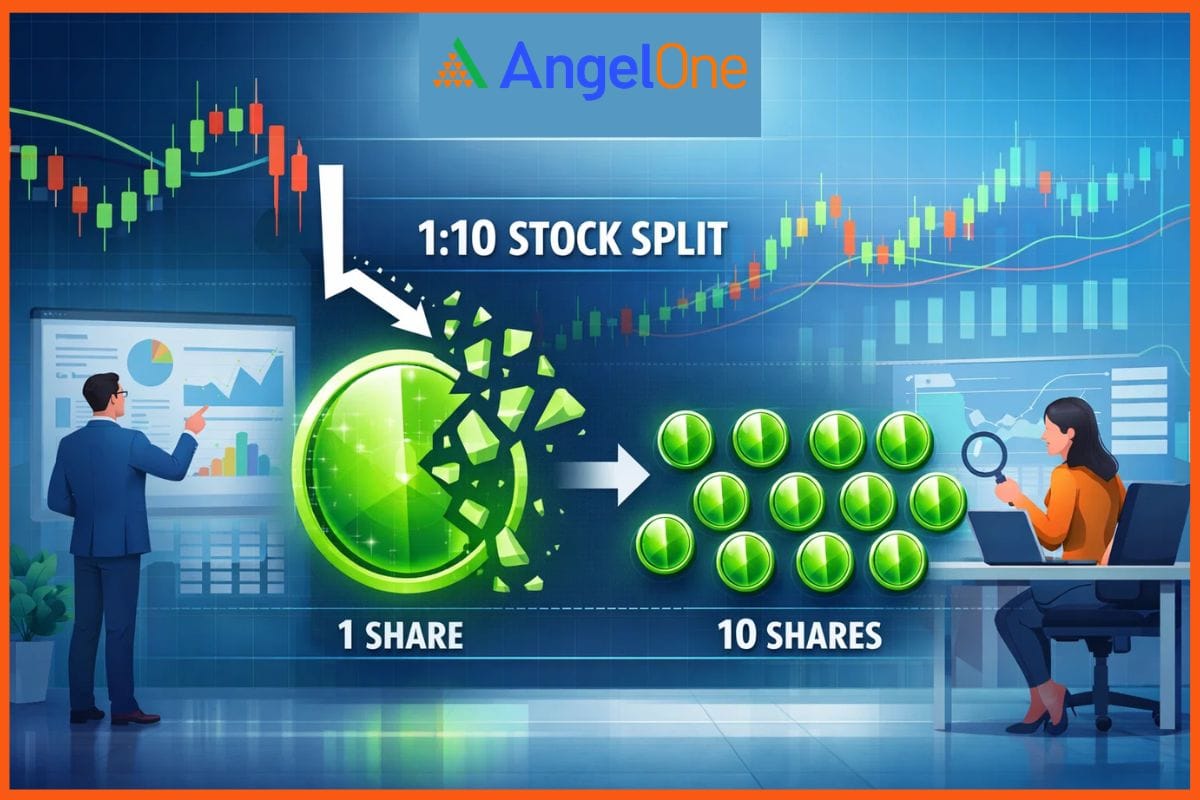Adidas: The Emergence of a Leading Sports and Fashion Brand
📄Company Profiles
Company Profile is an initiative by StartupTalky to publish verified information on different startups and organizations. The content in this post has been approved by the organization it is based on.
Sport underpins everything we do. Sport is becoming increasingly significant in the lives of more and more people, both on and off the field of competition. Every culture and community depends on it, and it is essential to our well-being.
Adidas is the second-best sports brand in the world, and its culture and workforce are what make it successful and enable it to carry out its strategy of "Own the Game." It gives life to the brand's identity, which is established through its mission, attitude, and purpose.
Here's the success story of Adidas that covers all about the company, its Startup Story and Growth, its Products, its Competitors, its Revenue, it's Business and Revenue Model, and more, you can check ahead!
Company Highlights
| Company Name | Adidas |
|---|---|
| Headquarters | Herzogenaurach, Bavaria , Germany |
| Sector | Apparel, Accessories, Sports Equipment |
| Founders | Adolf Dassler |
| Founded In | 1924 |
| Website | Adidas.com |
Adidas - About
Adidas - Industry
Adidas - Founder and Team
Adidas - Startup Story
Adidas - Name, Logo, Tagline
Adidas - Mission and Vision
Adidas - Products
Adidas - Business Model
Adidas - Sponsorships
Adidas - Funding and Investors
Adidas - Investments
Adidas - Acquisitions
Adidas - Competitors
Adidas - Challenges Faced
Adidas - Future Plan
Adidas - About
Adidas is a multinational corporation, founded and headquartered in Herzogenaurach, Germany, that designs and manufactures shoes, clothing, and accessories. The company is the largest sportswear manufacturer in Europe and the second-largest in the world, after Nike.
Adidas products are marketed under several brands, including Adidas, Reebok, and TaylorMade. The company also owns the Rockport and Nine West brands. In addition to manufacturing and marketing its products, the company also licenses its brands to third parties. The company has a focus on sustainability and environmental responsibility and is committed to reducing its environmental impact.

The company's clothing and shoe designs typically feature three parallel bars, and the same motif is incorporated into Adidas's official logos. Adidas has been a publicly traded company since 1995 and has been listed on the Frankfurt Stock Exchange since 1988. The company has a global supply chain, including manufacturing facilities in Asia, Europe, and the Americas. Some of the key markets for Adidas include the United States, Germany, and China.
Adidas - Industry
The sportswear industry is a global market that produces and sells clothing, footwear, and accessories designed for sports and physical activities. The industry is highly competitive and is dominated by a few major players, such as Nike, Adidas, and Under Armour. The sportswear market is driven by factors such as increasing participation in sports and fitness activities, advancements in technology that improve the performance and comfort of sportswear, and the growing popularity of athleisure, a trend where athletic clothing is worn in non-athletic settings.
The sportswear market is segmented by product, including footwear, apparel, and accessories. The footwear segment is the largest, accounting for the majority of the market share, followed by apparel and accessories. Within the sportswear market, there are different sub-segments, such as running, training, and outdoor wear. The market is also segmented by distribution channels, including online and offline retail. Online retail is expected to witness significant growth due to the increasing popularity of e-commerce platforms and the convenience of online shopping.
The sportswear industry is a global market, with key markets in North America, Europe, and Asia. Asia is the fastest-growing market due to the increasing disposable incomes and the growing popularity of sports in the region. The industry is expected to continue to grow in the coming years, driven by factors such as an increasing focus on health and fitness, and the growing popularity of athleisure. However, the industry is also facing challenges, such as increased competition, changing consumer preferences, and the impact of COVID-19 on consumer spending.
Adidas - Founder and Team
Adidas was founded by Adolf "Adi" Dassler in 1948.
Adolf Dassler
Adolf "Adi" Dassler was a German cobbler and entrepreneur who was the founder of Adidas, one of the world's leading sportswear brands. He was born in Herzogenaurach, Germany, in 1900 and began his career as a cobbler, working in his mother's laundry room. He was also an avid athlete and recognized the need for high-performance athletic footwear.

Some other team members include :
- David Sobeski - SVP Machine Learning & Analytics
- Jacqueline Smith-Dubendorfer - Global VP, Digital Partner Commerce
- Kasper Rorsted - CEO
- Thomas Holleczek - Director B2B Data & Services
- Walter Wählt - Senior Director Advanced Creation - Technologies Apparel
- Jithesh Ramachandran - Senior Business Consultant
- Markus Rautert - Senior Vice President Technology Enablement
- Annie Melnic - Senior Digital Analyst
Adidas - Startup Story
In 1924, Dassler and his brother Rudolf Dassler started a shoe company, Dassler Brothers Shoe Factory, that produced sports shoes. The company was successful and supplied athletes with shoes for the 1936 Summer Olympics in Berlin. However, the brothers had a falling out in 1948 and went their separate ways, with Adi Dassler founding Adidas and Rudolf Dassler founding Puma.
Adi Dassler's focus was on creating high-performance athletic footwear and equipment that would give athletes an edge on the field. He was heavily involved in the design and development of Adidas products, and the company quickly gained a reputation for producing innovative, high-quality sports footwear. He also supported many athletes and teams, and Adidas shoes were worn by several Olympic medallists and world champions.
Adi Dassler passed away in 1978 but his legacy lives on through the Adidas company, which is now one of the world's leading sportswear brands. He is considered to be a pioneer in the sportswear industry and his innovations in design, materials, and manufacturing continue to influence the industry today.
Adidas - Name, Logo, Tagline
The name "Adidas" is a portmanteau of the founder's name, Adolf "Adi" Dassler. The company was originally founded as "Dassler Brothers Shoe Factory" by Adi Dassler and his brother Rudolf Dassler in 1948. However, the two brothers had a falling out and decided to go their separate ways, with Adi Dassler keeping the company and renaming it "Adidas". The name was created by combining the first three letters of his first name "Adi" and the first two letters of his last name "Das" to form "Adidas".
The company's logo, which features three parallel bars, was also inspired by the founder's name, as it represents the letters of his name.
Adidas' current tagline is "Creating the New" which was first introduced in 2019. It is meant to reflect the brand's commitment to innovation and pushing the boundaries of what's possible in the world of sport and fashion. This tagline is meant to inspire customers to push their boundaries and to be their best selves.

Before that, the company had several other taglines, such as "Impossible is Nothing" (2004-2010) and "Adidas is all in" (2011-2019) which were meant to convey the brand's message of perseverance, determination, and the celebration of the power of sport.

Adidas - Mission and Vision
Adidas' vision statement is "To be the best sports company in the world."
Adidas' mission statement is "To be the leading sports brand in the world."
Adidas - Products
Adidas offers a wide range of products for both men and women, including athletic footwear, clothing, and accessories. Some of the main categories of products offered by Adidas include:
- Athletic Footwear: Adidas offers a wide variety of athletic shoes for different sports and activities, including running, basketball, soccer, golf, and more. The company's footwear line includes both performance and lifestyle shoes.
- Apparel: Adidas offers a range of athletic clothing for men and women, including t-shirts, hoodies, jackets, pants, and shorts. The company also offers sports-specific clothing, such as soccer jerseys and basketball uniforms.
- Accessories: Adidas offers a variety of accessories, such as bags, hats, and socks.
- Equipment: Adidas also offers a range of sports equipment like football, basketball, and other sports
- Training and Fitness: Adidas also offers products like workout clothes, yoga mats, and fitness accessories
- Sustainability: Adidas also has a range of sustainable product lines, which includes products made from recycled materials and using sustainable production processes.
Adidas also has collections and collaborations with various designers and celebrities like Yeezy, Alexander Wang, and many more.
Adidas - Business Model
Adidas operates using a multi-channel business model, which involves the use of multiple channels to reach customers and sell products. The company's main channels include:
- Retail Stores: Adidas operates its retail stores, which are designed to create an immersive brand experience for customers. These stores carry a wide range of Adidas products and are strategically located in high-traffic areas.
- E-commerce: Adidas operates its e-commerce website, which allows customers to purchase products online. The website offers a wide range of products and features, such as product reviews, size charts, and detailed product information.
- Wholesale: Adidas sells products to retailers and distributors, who then sell the products to customers. This channel makes the company reach a wide range of customers through a network of retail partners.
- Licensing: Adidas also generates revenue through licensing agreements with third parties, who use the Adidas brand and logo on their products.
- Sponsorship: Adidas is also involved in sports sponsorship and partnerships with sports teams, athletes, and events, which supports the company to promote its brand and products.
Adidas is also focused on sustainability, and the company is using sustainable materials, processes, and practices throughout its entire product line. They are also creating products that are designed to be recycled or repurposed, to reduce their impact on the environment.
Adidas - Sponsorships
Adidas is heavily involved in sports sponsorship and partnerships, which helps the company to promote its brand and products. Some of the major sports sponsorships and partnerships that Adidas is currently involved in include:
Team Sponsorship
Adidas sponsors several sports teams and organizations, including major soccer teams such as Real Madrid, Manchester United, Bayern Munich, and Juventus. They also sponsor various national teams such as Spain, Germany, and Argentina.
Athlete Sponsorship
Adidas also sponsors several individual athletes across various sports, including Lionel Messi, Paul Pogba, James Harden, and many more.
Event Sponsorship
Adidas is also involved in sponsoring major sporting events, such as the FIFA World Cup, UEFA Champions League, and the Olympic Games.
Grassroots Sponsorship
Adidas also sponsors local and amateur sports teams and events to help promote the sport and encourage participation at all levels.
Ambassadors
Adidas also uses brand ambassadors to promote their products, such as David Beckham, Kanye West, and many more.
Through these partnerships and sponsorships, Adidas can build a strong connection with fans, athletes, and events, which helps to increase brand awareness and drive sales. Additionally, these sponsorships allow Adidas to showcase its products and technologies at the highest level of competition, and to gain valuable feedback from athletes and teams.
Adidas - Funding and Investors
| Date | Round | Amount | Lead Investors |
|---|---|---|---|
| Apr 15, 2020 | Post-IPO Debt | - | - |
Adidas - Investments
| Date | Organization Name | Round | Money |
|---|---|---|---|
| Mar 22, 2022 | Yuga Labs | Seed Round | $450M |
| Jul 5, 2021 | Infinited Fiber Company | Series B | €30M |
| Oct 21, 2019 | GreenPark Sports | Seed Round | $8.5M |
| Nov 19, 2018 | PlayVS | Series B | $30.5M |
| Dec 4, 2017 | OneFootball | Series C | - |
Adidas - Acquisitions
| Acquiree Name | About Acquiree | Date | Amount |
|---|---|---|---|
| Runtastic | Runtastic is a mobile fitness company | Aug 5, 2015 | $240M |
| Adams Golf | Adams Golf, Inc. is a golf club manufacturer based in Plano, Texas. | Jun 1, 2012 | - |
| Five Ten USA | Five Ten USA is an American manufacturer of outdoor and athletic footwear. | Nov 4, 2011 | - |
| Textronics | Textronics develops and commercializes wearable textile sensor components and clothing solutions for fitness and health monitoring. | Dec 8, 2008 | - |
| Mitchell & Ness | Mitchell & Ness is a sports apparel company that produces premium apparel and headwear. | Nov 12, 2007 | - |
| Reebok International | Reebok is a global brand that creates and markets sports and lifestyle products. | Aug 3, 2005 | $3.8B |
| TaylorMade Golf | TaylorMade Golf is a manufacturer of high-performance golf equipment and golf balls. | Jan 1, 2005 | - |
| Salomon AG | Salomon AG designs, develops, produces, and markets athletic and sports lifestyle products worldwide. | Sep 17, 1997 | $1.4B |
Adidas - Competitors
Adidas is one of the leading sportswear companies in the world and competes with several other major brands in the industry. Some of the main competitors of Adidas include:
Nike
One of the biggest and most well-known sportswear brands in the world, Nike is a direct competitor of Adidas in nearly all sportswear categories and market segments.
Puma
Another major sportswear brand, Puma is a direct competitor of Adidas in several categories, including footwear, apparel, and accessories.
Under Armour
An American sportswear company that is primarily focused on performance apparel, footwear, and accessories.
Reebok
A subsidiary of Adidas, Reebok is a competitor in the fitness and active lifestyle market segments.
ASICS
A Japanese company that designs and manufactures footwear, apparel, and accessories for a wide range of sports and activities.
New Balance
An American company that designs and manufactures athletic footwear and apparel.
Skechers
An American company that designs and markets footwear for men, women, and children, and also has a focus on lifestyle and performance footwear.
Li-Ning
A Chinese company that designs, develops, and markets footwear, apparel, and accessories for sports and fitness activities.
These are some of the major competitors of Adidas, but the company also faces competition from many other smaller brands, as well as from generic and unbranded products in the market.

Adidas - Challenges Faced
Adidas, being a well-established and successful global company, may not face the same types of startup challenges as a new and emerging company. However, like any other company, they may still face some challenges that may affect the growth and profitability of their business. Some of the challenges that Adidas may face include:
- Competition: Adidas faces intense competition from other established sportswear companies such as Nike and Puma, as well as from many smaller brands and generic products. This competition can make it difficult for Adidas to maintain market share and drive sales.
- Changing Consumer Preferences: Consumers are becoming increasingly conscious of the environmental and social impact of the products they buy, and this is leading to a shift in consumer preferences towards sustainable and eco-friendly products. Adidas must adapt to these changing consumer preferences to remain relevant and competitive in the market.
- Digital Disruption: The rise of e-commerce and online marketplaces has disrupted traditional brick-and-mortar retail and changed the way consumers shop for products. Adidas must adapt to these changes in consumer behavior to remain competitive and drive sales.
- Supply Chain and Logistics: The company has to ensure that the supply chain and logistics are efficient and effective.
- Intellectual Property: Adidas has to protect its brand and intellectual property, especially in the global market, where counterfeiting and intellectual property infringement are major concerns.
- Sustainability: Adidas has to balance its profitability with sustainability, and that means having a sustainable supply chain and products, which might increase the cost of production.
- Political and Economic Instability: As a global company, Adidas may be affected by political and economic instability in different regions and countries where it operates, which can lead to uncertainty and instability in the market.
- Labor Laws and Regulations: Adidas must comply with labor laws and regulations in different countries, which can vary widely and be complex, and they also have to ensure fair and humane working conditions in their supply chain.
These are some of the main challenges that Adidas may face, but the company is constantly adapting and evolving to meet these challenges and remain a leading player in the sportswear industry.
Adidas - Future Plan
Adidas has several plans for the future to continue growing its business and staying competitive in the sportswear industry. Some of the main plans for 2023 and beyond include:
- Digitalization: Adidas is focusing on digitalization to drive growth and improve efficiency across the business, including in areas such as e-commerce, data analytics, and digital marketing.
- Sustainability: Adidas is committed to sustainability and plans to continue developing sustainable products and reducing its environmental impact, through the use of sustainable materials, recycling and recycling programs, and reducing its carbon footprint.
- Innovation: Adidas is investing in innovation to drive growth and stay ahead of the competition, including in areas such as product design, manufacturing, and technology.
- Expansion in Emerging Markets: Adidas plans to expand its presence in key emerging markets, such as China, India, and Africa, where they see significant growth potential.
- Direct-to-consumer Strategy: The company is planning to increase its direct-to-consumer sales and reduce its dependence on retail partners, through the expansion of its own retail stores and e-commerce platform.
- Collaboration: Adidas plans to continue collaborating with other brands, designers, and influencers to create new and innovative products, as well as to expand its reach and appeal to new customers.
- Personalization: Adidas plans to use data and technology to personalize its products and services for customers, to improve the customer experience, and drive sales.
- Sportswear for Everybody: Adidas is committed to creating sportswear for everybody, including inclusive sizes and designs for people of all sizes, abilities, and backgrounds.
These are some of the main plans that Adidas has announced for 2023 and beyond, but the company may also make other changes and adjustments to its strategy as the market and business environment evolves.
FAQs
What does Adidas do?
Adidas designs and manufactures sports and lifestyle products, including footwear, apparel, and accessories.
Who founded Adidas?
Adidas was founded by Adolf "Adi" Dassler in 1948.
Who are the main competitors of Adidas?
The main competitors of Adidas include Nike, Puma, Under Armour, Asics, Skechers, New Balance, Reebok, and Li-Ning.
Must have tools for startups - Recommended by StartupTalky
- Convert Visitors into Leads- SeizeLead
- Website Builder SquareSpace
- Run your business Smoothly Systeme.io
- Stock Images Shutterstock







